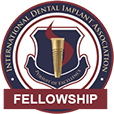The ABCs of Vitamin C
November 20th, 2019

A as in Ascorbic Acid
Ascorbic acid is just another name for vitamin C, which is one of the so-called “essential nutrients.” These are nutrients that are necessary for our bodies to function properly, and which must be supplied through our diets. Why is ascorbic acid essential?
First and foremost, because we have to have vitamin C for the formation of collagen.
We’ve probably all seen the ads promoting collagen as a fountain of youth for our skin. Whether or not a cream can turn back time is a matter for debate, but there’s no question as to the vital role collagen performs in our own bodies. That’s because collagen is the substance that provides both structure and support to our tissues, forming the basis of the connective tissue that holds us together. (The Greek root “kolla” means glue!) Organs, blood vessels, muscles, bones, skin, even the dentin in our teeth all rely on collagen to function.
And if that weren’t enough for one vitamin, vitamin C also helps the body repair tissue, absorb iron, form teeth and bones, produce neuro-transmitters, and acts as an antioxidant. Whew! So, how often should we be eating foods rich in vitamin C? Maybe more often that you would think.
B as in Biology
The human body is an amazing thing! We can store many of the essential nutrients we need to keep ourselves healthy in our livers and fat tissue, even if fresh food sources aren’t immediately available. Unfortunately, Vitamin C is one of those vitamins that we can’t store in the body. This means that unless we get the vitamin C we need in our diet on a regular basis, we’ll experience vitamin C deficiency. How serious is that?
The importance of vitamin C to our health can’t be overstated. Vitamin C deficiency over a period of months actually causes a serious disease called scurvy. Without vitamin C, collagen formation breaks down. And when collagen breaks down, it leads to the breakdown of all those parts of the body that rely on collagen. In the short term, scurvy causes gum pain, fatigue, weakness, and body aches. Over longer periods, scurvy can lead to bruising, skin hemorrhages, anemia, tooth loss, severe gum disease, organ failure, and even death.
Luckily for us, scurvy is largely a disease of the past, thanks to the easy availability of fresh fruits and vegetables which provide us with vitamin C. So, which items should we add to the shopping list?
C as in Citrus—and So Much More!
When we think vitamin C, we instantly picture citrus fruits. Oranges, lemons, limes, grapefruit, and all their cousins are a wonderful source of vitamin C. Looking for a little more variety? You’re in luck! Fruit fans can load up on strawberries, kiwi fruit, mangos, and papayas. Love your veggies? Red peppers, kale, cauliflower, Brussels sprouts, and broccoli contain more vitamin C per serving than a medium orange. You can also take vitamin C supplements, but be sure to follow the recommended dosage. You can have too much of a good thing.
While we’re here, let’s add one last letter to the list:
- D as in Dental Health
So, why are we talking about vitamin C on a dental blog? Because vitamin C is essential to our dental health. Healthy gum tissue, strong connective tissues that hold our gums to our teeth and our teeth in our jaws, faster healing, antioxidants—all have been linked to a diet rich in vitamin C.
Careful brushing and flossing, regular checkups and cleanings at our Lebanon, NJ office, a balanced diet—these are all ways you can be proactive when it comes to your dental health. Talk to Dr. DeCasperis about the best vitamins and minerals for healthy teeth and gums. Vitamin C is a great beginning, but there’s still an alphabet from vitamin A to Zinc left to go!









